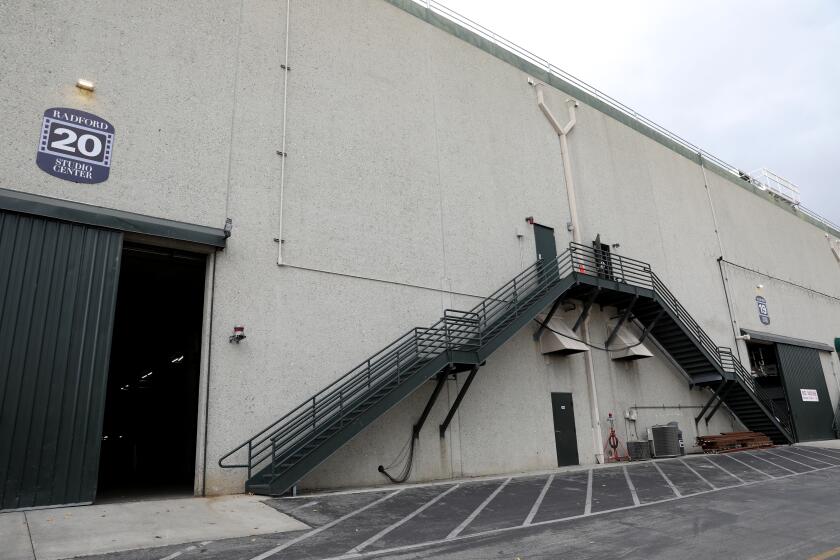Lots of Jokes, Few Thigh-Slappers : Comedy Is Everywhere, but It’s Not as Funny as It Used to Be
It’s not that I don’t like to laugh. I love to laugh. I do so quite often, and with abandon. Put me in church, or better yet at a modern dance performance, and my sides split like the San Andreas fault.
I can’t remember how many times I’ve staggered up dark aisles in an uproarious retreat to lobbies and ladies’ rooms, leaving my mortified companions to contemplate the cosmic implications of a hirsute woman in a translucent leotard standing still and silent in the spotlight’s beam.
Now that’s what I call a thigh-slapper.
And yet the other night I endured no more than 15 minutes of Tom Hanks in “The ‘Burbs” before shutting off the VCR without ever having emitted so much as a guffaw. David Letterman is about as invigorating as Valium, if you ask me. “Saturday Night Live” still exhibits some occasional flashes of brilliance, which I note, cerebrally, for their wit or insight.
Comedy--on the tube, at the movies, on the club circuit--is now more abundant than ever. So why aren’t I laughing?
It is said that comedy is the rock ‘n’ roll of the ‘80s. It is fast becoming the premier entertainment medium for both the young and the middle-aged, and is now proving so profitable for its promoters that two of the nation’s biggest cable-TV programmers--Home Box Office and MTV--will soon launch 24-hour, all-comedy channels.
Billy Crystal is on the cover of this month’s GQ, one of a slew of magazines to devote entire issues to the ascendance of the joke. And comedy clubs, previously confined to the more sophisticated urban centers, now populate the landscape with the predictability of the golden arches. Many, in fact, are chain-owned.
The McDonald’s metaphor seems to me far more apt than the rock ‘n’ roll one, considering that today’s comedy doesn’t so much juice its audience as pacify it--a Big Mac for today’s hungry psyches, soothing chronic stress and compulsive seriousness with a quick, easy and familiar distraction that’s as filling as it is insubstantial.
Twenty years ago, one comic tells me, you had to get a laugh every 40 seconds to succeed. Today, if you exceed 15 seconds you’re history. As for subject matter, politics, social issues and sex have been supplanted by malls, pets and Jersey.
“We live in an era when people think Socrates is an American Indian and the Holocaust is a Jewish holiday. Money is the supreme value. Everyone is a business major. No one can understand references to history or literature,” says Scott Carter, a stand-up comic who appears regularly at the Comic Strip in New York. “For these people, the notion that life is not to be taken seriously is a great comfort.”
Carter, who embarked on the club circuit about five years ago and has observed its spread with some regret, says the comedy boom is the result of technological trends and marketing conditions rather than a response to audience demand.
First of all, club owners have discovered that a couple of comics are much cheaper than a band and much less of a hassle--no speakers, no roadies, fewer groupies, more space to pack in more customers who sit instead of dance and, therefore, buy more drinks. Meanwhile, the emergence of cable has provided a vast new outlet and a much wider audience for an expanding wave of comic talent.
The effect is that comedy has become more mainstream, more commercial and more formulaic. A couple of dirty jokes, a few prop jokes, a Jack Nicholson imitation, and the kid who might once have started a garage band now becomes a comedian.
“What we’re getting in comedy, and rock too, is the Kabuki effect--gestures and appearances being handed down from one generation to the next for no reason at all. So much of it is imitative,” Carter says.
Even the audience response is scripted now, he adds. “Audiences learn how to behave as audiences. If you go to a rock concert you know at some point you’re supposed to light a match. Comedy audiences know the mention of certain things, like New Jersey, are supposed to prompt laughs. And they do.”
Maybe that’s my problem. I haven’t learned the moves. I’m still laughing under the illusion that quirkiness is the mother of funny. Quirkiness and certain strains of modern dance.
More to Read
The biggest entertainment stories
Get our big stories about Hollywood, film, television, music, arts, culture and more right in your inbox as soon as they publish.
You may occasionally receive promotional content from the Los Angeles Times.






